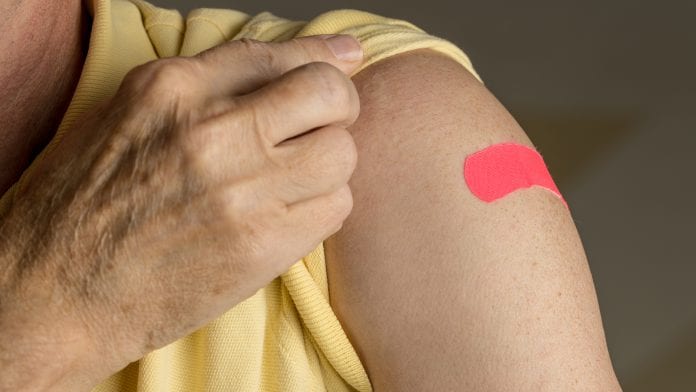
New research has shown how older people’s immune system response to vaccines could be boosted using immunology expertise and the surprising use of genital wart treatment.
Linterman Lab has published new research that shows how the immune system response in older mice can be improved through the use of genital wart cream to boost the number of stimulatory cells.
Mice and humans show similar age-dependent changes in their immune system so this finding offers hope for easily increasing the robustness of vaccination response in the older population.
The research is published online in the journal eLife.
Boosting immune responses in older people
As we age, the function of our immune system declines, rendering us more susceptible to infections, and making us less able to generate protective immunity after vaccination.
By understanding the cellular and molecular mechanisms that underpin this poor response in older individuals, researchers in the Linterman lab were able to repurpose an existing treatment for genital warts, and demonstrate that this was effective in overcoming the age-related effects on two of the many cell types making up our immune system.
Dr Michelle Linterman, a group leader in the Institute’s Immunology research programme, said: “The current coronavirus pandemic highlights that older members of our families and communities are more susceptible to the morbidity and mortality associated with infectious diseases. Therefore, it is imperative that we understand how the immune system in older people works, and to explore how we might be able to boost their immune responses to vaccines to ensure they work well in this vulnerable part of our society.”
T follicular helper cells
The researchers found that older mice and humans form fewer T follicular helper cells after vaccination, which is linked with a poor germinal centre response and antibody response.
By developing our understanding of the cellular and molecular events occurring in the germinal centre after vaccination, the researchers identified that T follicular helper cells in older mice and people received less stimulatory interactions from their immune system co-workers.
By using a cream (imiquimod, currently used to treat genital warts in humans) on the site of immunisation to boost the number of stimulatory cells, they were able to restore the formation of T follicular helper cells in older mice and also rescue the age-dependent defects in another immune cell type (dendritic cells). Encouragingly, this demonstrates that the age-related defects in T follicular helper cell formation in ageing are not irreversible, and can be overcome therapeutically.
Dr Linterman explained: “The germinal centre response is a highly collaborative process that requires multiple cell types to interact at the right place and the right time. Therefore, it made sense to us that defects in one or more of these cell types could explain the poor germinal centre response observed in older individuals after vaccination.”

























